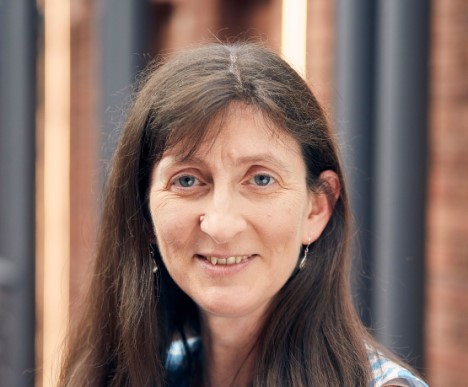Staff needs lost in rush to merge NHSE/I by year’s end, MiP warns

The realignment of NHS England and NHS Improvement (NHSE/I) is being carried out at such speed that the circumstances and needs of individual staff risk being ignored, MiP has warned.
“This process is being done on such a huge scale, and at such a pace, that attention to detail at the individual level can get lost,” said Ruth Smith, one of the MiP national officers representing members affected by the merger, which is due to be completed by the end of 2019. She warned that the needs of staff on maternity leave, sick leave or a career break, or those with disabilities or caring responsibilities, were particularly likely to be overlooked.
At the time of writing in early December, the allocation of staff to jobs in ‘Pool A’ – posts where existing staff can simply be ‘slotted in’ – had been completed and attention switched to the 1,000 staff seeking posts in Pool B – where staff can ‘express interest’ in two posts within their own region or directorate. Around 40% of staff had found a post through this process by the beginning of December.
Staff who do not find a post in Pool B will be placed in Pool C, where they can put themselves forward for up to two posts in their band anywhere in NHSE/I . The Pool C process is being run on a grade-by-grade basis, which began with Grades 9 and 8D at the end of November and is scheduled to be complete by the end of the year.
Smith explained that staff who are unsuccessful in Pool C would not necessarily be made redundant. “Any remaining posts will be filled by internal open competition, which basically means the normal NHSE process for filling vacant posts,” she said.
MiP raised a number of serious concerns at a joint meeting with management in late November, including whether posts being offered were within reasonable travelling distance, particularly taking into account personal circumstances.

“It has to be done on an individual basis,” said Smith. “Where people have caring responsibilities, we fully expect a conversation to be had about the suitability of the post if it requires a change of base or more travel, and for that to be handled through HR leads.”
She added: “We have been told that NHSE/I will encourage better use of technology to reduce the need for travel, and will challenge the idea that central posts have to be based in Leeds or London.”
MiP is also encouraging members to report any “inappropriate” external advertising of posts before the process of allocating existing staff had been completed. “With a few exceptions, substantive posts should not be advertised outside during this process,” said Smith. Those exceptions were “growth areas” for NHSE/I – such as midwifery – where there are likely to be more posts than existing staff. “In those cases, prior consideration should still be given to existing staff,” she added.
MiP is also discussing a number of other issues with NHSE/I management, following complaints by members. They include:
- Rights for members on maternity leave to be slotted into new posts (see below);
- Emails and other communications about the reorganisation being sent to members outside working hours;
- Out of date or incomplete job descriptions and job evaluation scores being used to assess people for new posts;
- The implications for members on sick leave who may not be able to participate in the process.
MiP advises members with concerns about their future job in the merged NHSE/I structure, or with the way the process is being carried out locally, to raise them with their line manager as soon as possible, involving the local leads for HR, implementation, and equality and diversity, where necessary. They should also contact their national officer at the same time.
“I can’t stress enough that people need to raise any concerns with both MiP and their manager as soon as possible,” added Smith. “This process is moving at 100mph and people may miss out on opportunities to put things right if they don’t act quickly.”
MiP acts to protect maternity rights in NHSE/I merger
MiP has won assurances from NHS England that the rights of women on maternity leave will be fully protected in the merger with NHS Improvement, following complaints from members that pregnant women and new mothers were being forced to compete for jobs in the new organisation.
Under current legislation, women on maternity leave should not have to compete with colleagues for jobs, where a suitable post is available in the new structure. Reports from MiP members suggest that these rights were not always being honoured at local level.
 MiP national officer Zohra Francis
MiP national officer Zohra FrancisFollowing an intervention by MiP national officer Zohra Francis, NHSE/I have now given assurances that women on maternity leave who meet the essential criteria for a job in the merged organisation will simply be offered the role.
“Earlier in the process, a number of members contacted me with complaints,” Francis said. “The worst case was a woman who had just given birth, who was told that she had to attend an interview or she would forfeit her role in the new organisation.
“This is an important success for MiP,” she added, “but members absolutely need to know their rights in these circumstances. They should challenge any attempt to make them compete for ring-fenced jobs and report it to MiP immediately. Just challenging it with your line manager can be enough to get the proposal withdrawn. But if not, contact your MiP national officer for help to get it resolved.”
Related News
-

Faster pay progression for managers aims to tackle promotion blockages
MiP has welcomed moves to speed up pay progression for Band 8 and 9 managers and tackle long-standing problems with the Agenda for Change pay system that deter staff from seeking promotion.
-

News: Union welcomes above-inflation rise for board-level managers
MiP has welcomed a 5% pay rise for very senior and executive senior managers in the NHS in England, after the UK government accepted the latest recommendations from the Senior Salaries Review Body (SSRB).
-

News: 5.5% rise marks noticeable shift on Agenda for Change pay
MiP has welcomed the 5.5% pay rise for NHS staff on Agenda for Change as “a notable shift” and a “good starting point” for future negotiations.